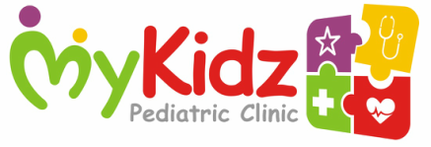sleep apnea
What is Obstructive Sleep Apnea?
Obstructive sleep apnea is a condition marked by interrupted breathing during sleep. It occurs because of partial or complete obstruction of the airways during sleep due to structural or neuromotor abnormalities. The interrupted breathing may lead to drop in oxygen levels in the blood during sleep, as well as to poor sleep quality. In children, obstructive sleep apnea is usually associated with enlarged tonsils and/or adenoids, but can be also associated with obesity, diseases affecting the central nervous system and the muscles, as well as with abnormalities of the shape of the head, neck and mouth. Obstructive sleep apnea can lead to learning and behavioral problems, as well as to heart and lung problems in severe cases.
Symptoms
Diagnosis
Treatment
When to Call for Help
Call your pediatrician if you notice any of the above symptoms in your child.
Obstructive sleep apnea is a condition marked by interrupted breathing during sleep. It occurs because of partial or complete obstruction of the airways during sleep due to structural or neuromotor abnormalities. The interrupted breathing may lead to drop in oxygen levels in the blood during sleep, as well as to poor sleep quality. In children, obstructive sleep apnea is usually associated with enlarged tonsils and/or adenoids, but can be also associated with obesity, diseases affecting the central nervous system and the muscles, as well as with abnormalities of the shape of the head, neck and mouth. Obstructive sleep apnea can lead to learning and behavioral problems, as well as to heart and lung problems in severe cases.
Symptoms
- Loud snoring
- Gasping during sleep
- Abnormal movement during sleep
- Daytime drowsiness
- Fatigue
- Morning headaches
- Memory, concentration or learning problems
- Irritability
Diagnosis
- Exam of the throat, neck and tonsils
- Sleep study (called polysomnography), a recording of brain activity, muscle movement, breathing, heart rate, oxygen levels and airflow to the lungs while a person is asleep. This is typically conducted in a specialized pediatric sleep facility within a hospital.
Treatment
- Surgery: In children, the leading causes of sleep apnea are enlarged tonsils and/or adenoids, and the first line of treatment is surgical removal.Most children with sleep apnea are treated effectively by removal of the enlarged tonsils and/or adenoids.
- Breathing mask: Another treatment is wearing a special mask at night to ensure smooth airflow and uninterrupted breathing during sleep.
When to Call for Help
Call your pediatrician if you notice any of the above symptoms in your child.

